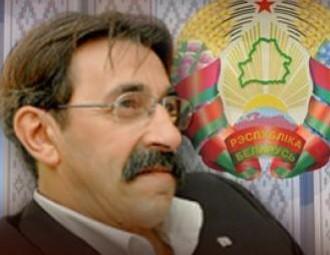Aliaksandr Milinkevich: Israeli envoy is upset by the pain he caused to political prisoners

What were the opposition leaders and Josef Shagal, Israel's Ambassador to Belarus, discussing during their two-hour meeting?
Recent statements made by Josef Shagal, Israel's Ambassador to Belarus,in an interview to RRTVI caused a wave of disapproval from the democratically oriented part of Belarusan society. Let us recall that he referred to Belarusan political prisoners as to criminals. He summed up his statement, pointing that they “are serving their terms as convicted under a criminal article, not a political one.” In order to hush up the scandal, Israeli envoy invited the leaders of Belarusan opposition at a meeting that lasted the whole two hours. The United Civil Party has refused to participate in the meeting with Israeli Ambassador UCP leader Anatol Liabedzka refused to attend the meeting; he believes such statements to be unacceptable; thus, Israeli MFA has to change its Ambassador to Belarus, Liabedzka said.
The results of the meeting in the interview with the EuroBelarus Information Service summed up Aliaksandr Milinkevich, the leader of “Movement for Freedom”.
- Israeli envoy referred to the Belarusan political prisoners as to criminals and never apologized to the prisoners of conscience and their families. What were the opposition leaders discussing with him for the whole two hours?
- I don’t think that we are to instruct foreign diplomats; we have to influence their policy and talk to all of them. In the talk with the opposition Mr. Shagal has asserted what he has said earlier: Israeli TV has took his words out of context, which resulted in their ill interpretation. I do not defend Mr. Shagal, but I believe it is in our interests to involve Israel in active participation of Belarus’ transformation.
Opposition leaders pointed the insulting character of envoy’s words as well as voiced the necessity to bring apologies to political prisoners and their relatives. Israeli envoy is upset by the pain he caused to the political prisoners and their relatives with his words which were taken out of context. Today he said something different: Belarus has political prisoners. And the acknowledgement of this fact is very important.
- Was Josef Shagal talking on behalf of the Israel or it was his personal opinion?
- At the meeting Mr. Ambassador was talking on behalf of the Israel and Israeli Foreign Ministry.
Israel has long-established and clear stance: unlike many other democratic countries, like USA and European community, Israeli diplomacy doesn’t have a tradition to interfere in the domestic affairs of the country. And that tradition is being maintained in Belarus.
- Let us sum up the results of the meeting between the opposition leaders and Josef Shagal.
- Israeli envoy is upset by the pain he caused to the political prisoners and their relatives, he understands how bad and painful it is for people, who fight for democracy in Belarus. But we agreed to continue the dialog and inform each other.
Belarus is dependent on Israeli investments; we want Israel to decide on visa free regime with Belarus.
Of course, we can strike a wounded pose; but Belarus is already an isolated country, and we can’ isolate us even more.
Mr. Shagal will come up with Memorandum on behalf of himself and the embassy.
For the record:
Israeli Foreign Ministry made a statement that the words of Joseph Shagal in an interview to RTVI “by no means” reflect the position of Israel and that the Ministry “expresses regret about that”.
-
03.01
-
07.10
-
22.09
-
17.08
-
12.08
-
30.09



























